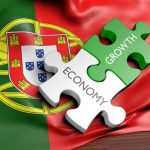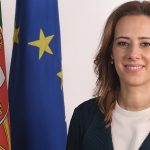President of Porto FC dies – club €21 million in the red
The President of Porto Football Club, Jorge Nuno Pinto da Costa, one of the most significant figures in Portuguese football died on Saturday at the age of 87 after a long battle against cancer.
Pinto da Costa led Porto FC for 42 years (Since 1982) securing 69 football titles and hundreds of other trophies in various sports.
Of the 69 titles – considered a European record for a football club chairman – he steered the club towards two Champions League trophies in his 42-year tenure at the Portuguese club.
In the 89 years prior to Pinto da Costa taking the helm at the club in 1982, Porto had only won 16 trophies and three of those was when he was head of the football department.
However, in terms of finances, Porto FC posted losses of €21 million for the club’s last season with Pinto da Costa at the helm – meaning the club is in a position of technical bankruptcy with negative own capital of €-113 million.
It had recently sold 30% of the Dragon Stadium rights to Madrid-based investment entity Ithaka for €50 million. According to the consultancy Crowe, the stadium was worth around €279 million at the end of 2024.
Not without controversy, Pinto da Costa was named in a high-level corruption cases in Portuguese football in 2004 – Apito Dourado (Operation Golden Whistle).
Portuguese Judiciary Police (Polícia Judiciária) investigators named several football personalities as suspects (arguidos) of corrupting or attempting to corrupt referees, including Pinto da Costa and the former Boavista F.C. President and Portuguese League for Professional Football President Valentim Loureiro. A major part of the affair involved lower division referees and clubs, namely UD Sousense and Gondomar S.C., and club officials.
Pinto da Costa’s health had deteriorated in recent weeks leading him to remain at home with his family.
Nevertheless, in late October the football mogul managed to release his final book, ‘Azul até o Fim’ (Blue to the Last) sharing memories and reflecting on his life, even details of his funeral wishes.
On Saturday evening fans unfurled a giant fabric banner of Pinto da Costa in which he appeared in a pseudo Game Of Thrones guise complete with crown, armor and a spread-wing dragon behind him from a balcony above the Dragon Stadium in Porto – the home of Porto FC.
Dressed in black, fans stood aloft on the balcony with handheld torches steaming smoke in the club’s colours of blue and white.
Porto FC, its players past and present and several football coaches joined leading politicians in Portugal, including the Prime Minister Luís Montenegro, the leader of the Portuguese Parliament, José Pedro Aguiar-Branco, and the Mayor of Porto, Rui Moreira paid tribute to the former president summing him up as an “eternal inspiration”, a man who left an “immortal legacy”.
A day of national morning was decreed by Porto City Council for today (Monday) when his funeral took place at a local church at Antas in Porto near the stadium at 11am. The façade of the city council offices were illuminated in white and blue.
However, as controversial in life, so in death, and he ordered that he wanted no one from the current board of directors at the club to turn up at his funeral.
“I wouldn’t wish ill on anyone but because they disturbed the peace of my last few days I don’t want anyone from the current board there, and I don’t want any of the ex-Porto FC players who betrayed me. (Antero Henrique, Raul Costa, Joaquim Oliveira, Tiago Gouveia, Pedro Bragança). I am certain they won’t have the nerve to attend”, he had written.
“The departure of the ‘President of Presidents’ leaves Futebol Clube do Porto orphaned of its greatest figure, the main organiser of great victories and the person most responsible for building an unmistakable identity and legacy. Jorge Nuno Pinto da Costa will live on forever in the memory and hearts of all Porto fans,” Porto Municipal Council said in an statement.
“Between 23 April 1982 and 7 May 2024, the biggest club in the North became the best club in Portugal and grew from local and regional to European and world level”.










